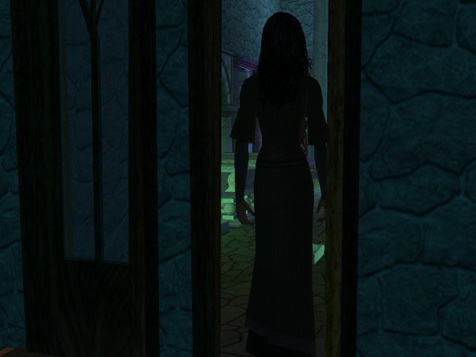
The chapel door seemed to weigh more than little Condal herself, but once she had given it enough of a push to let it know what she wanted of it, it kindly opened and stood patiently waiting for her to step through.

The moment she crossed the threshold, she forgot about all such everyday things, and the door sagely drifted closed behind her, shutting itself with a faint click like a nail dropping onto a stone.
Condal had already visited forests that in their stillness and majesty she had likened to churches, but she had never yet visited a church that made her think of forests.
This was a chapel unlike any other she had known. Its floor was pale and swept smooth; its columns rose straight and high unto a canopy of shadows; and its light was like a cloudless winter twilight, cooling into cobalt and limpid green.

In its beauty and its sacred silence it was like a forest on Christmas Eve. She could feel tiny, crystalline flakes of holiness drifting down upon her cheeks, caressing her, too cool and pure to melt even at the touch of her warm and tragically mortal skin.
Condal crossed herself with great solemnity and gratitude. She had come seeking only solitude, but peace was falling through the air.

Everyone was already gathered for dinner at the castle, even to the handsome young priest, but an hour of “everyone” beforehand, with their foreign speech and their endlessly renewed sympathies for her loss, had nearly overwhelmed her. The gentle Duchess had noticed it, and gruff Cousin Egelric had responded by sending her out to the chapel alone, warning her she had better get her fill of chapels while she could, since the only chapel on his shore of the lake had been given over to the Masses of mice.
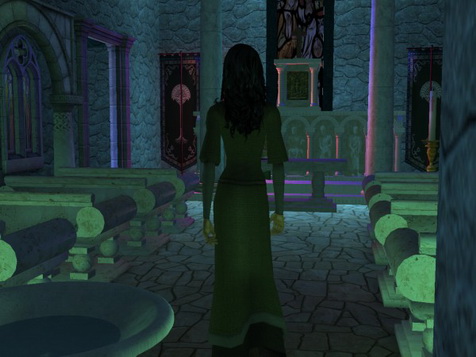
She did not have long: there would be the dinner, the goodbyes, and the ride. By nightfall she would be in the castle that would be her new home, perhaps until she had a home of her own. She and Eithne had often dreamt of living in a castle, but neither had wanted it to happen quite this way.
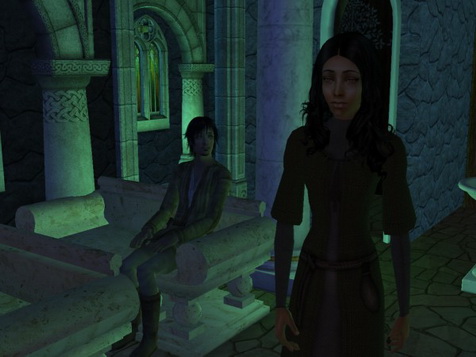
She narrowed her eyes until she saw only the colored light that might have been a winter evening. In the center of the church, the air was cooler and quieter yet, and she felt the wide silence around her like the calm of a clearing. Above her was only Heaven, and around her peace drifted like snow.
She heard a muffled rustling behind her, like a mouse tunneling through the drifts, safe from hungry eyes. She closed her own entirely and smiled at the thought of the bewhiskered little muzzle sniffling out the path, at the tiny paws scrabbling through the flakes, at the squirming pink babies waiting somewhere safe and warm…
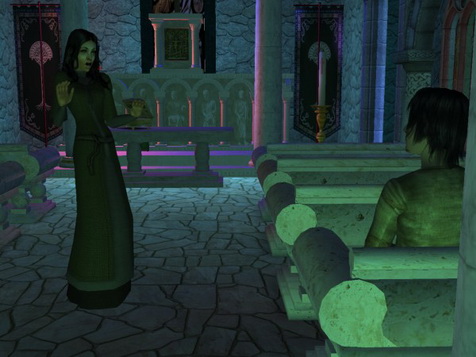
She spun around and opened her mouth to cry out, but the silence of the church stifled the sound in her throat.
She had let her imagination run away with her again. There was no mouse – no clearing – no snow – but there was a young man sitting on one of the pews.
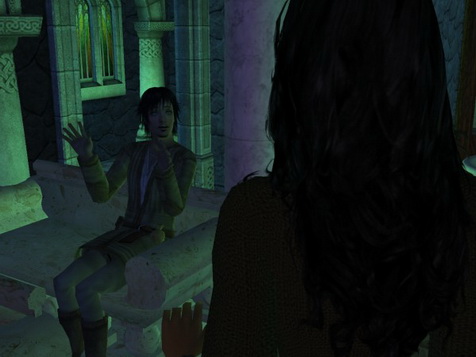
When she had entered he had been hidden by one of the pillars, but she had only missed him afterwards by having been lost in her pretending. Her father always said–
But her father was dead.

The thought still stunned her every time, striking her not like fluttering flakes, but like an entire roof-ful of wet snow slipping off and landing on her head, burying her in a pile of heavy, stifling, stupefying sorrow.
She stared miserably at the young man, who appeared more startled than she.

He looked to be of Flann’s age, or possibly even Eithne’s, and there was something wrong about his face, but she only truly noticed his eyes. They were blue-gray like snow-clouds in a winter twilight, and reflected such a perfect expression of sadness that it was an aching relief merely to look into them and see her own.

She realized only after a long moment that she had just been staring boldly at a boy, and what was worse, he had been staring back at her all the while. All she knew of boys was many shy glances, and while she had an idea that boys might sometimes permit themselves to stare, staring back was supposed to be a shocking thing.
She opened her mouth to justify herself, but once again no sound came forth – she remembered too late that she knew scarcely fifty words in English.
At once the young man’s face lit up with a smile – neither mocking nor leering, but glowing with a friendliness that was softened into tenderness by the lingering sorrow in his eyes.

He held up his clasped hands, but not to protest at having been interrupted at his prayers, nor to mock his prayerfulness or hers. His expressive face clearly said he had been praying and would continue to do so, as a traveler might say to another met on the road, “I am going this way, and if you are, too, we might walk on a while together.”
And so they would walk a while, neither speaking, neither knowing the other’s destination, but content to share that leg of the journey with a companion… so Condal imagined.

She smiled shyly behind her hand. They were not on a road – not in a clearing – they were in a church, and she had let her imagination run away with her again. What would her father say?
But her father was dead.
She turned suddenly away and hurried to the pew farthest from the young man and closest to the red lantern on the tabernacle, though the lamp itself was hidden behind a pillar as the young man himself had been.

She did not know what her father would have said, and the not knowing worried her. A boy one met in a church outside of Mass was likely to be a good Christian, it seemed – unless he were there to make up for some unspeakable sins. As for Cousin Finn, he was a nice boy, but he was scarcely a Christian at all – he knew the stories of the Bible, but to him they were no more or less true than the tales of the old pagan gods.
Now it was Cousin Egelric who would help her decide, and that too worried her. In the last hour she had already seen him laugh through his teeth at Kraaia’s unmaidenly pursuit of Squire Cedric, only to turn around and slam the Crown Prince himself against the wall for having stared too long at the same young lady. Perhaps Cousin Egelric would even propose for her a boy like himself.
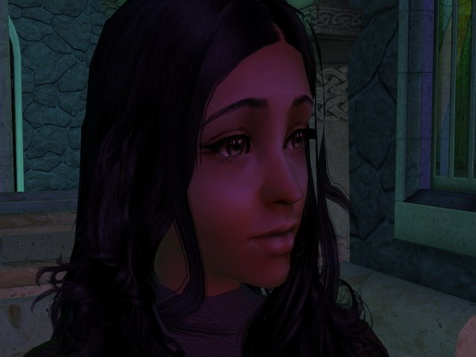
She would never know what her father would have said about that.
In the last hour they had spent together, she had seen her funny old father cry fat tears into his beard, fearing that innocent Eithne had been led astray all unknowing, and blaming himself for not having protected her better. The girls who had grown up without their mother had all come to sorrow, and that was his proof that he had failed as a father.

Too distracted by her own grief, Condal had not known how to convince him otherwise, other than by swearing to herself that she would be as good as she possibly could to prove him wrong. But that was a promise that would have taken years to fulfill, and now he would never see it. She would always live with that regret, as she would the guilt of having prayed more for her sister in those days than for him.
She had been so certain of Eithne’s death after that terrible, vivid dream of her throat slashed through – of the blood – of the head skewed – and that worst, most ineffaceable image of her windpipe severed and laid open like a narrow tunnel for evil to enter into her beloved body. Condal did not think she would ever stand to see a chicken or a goose killed again.
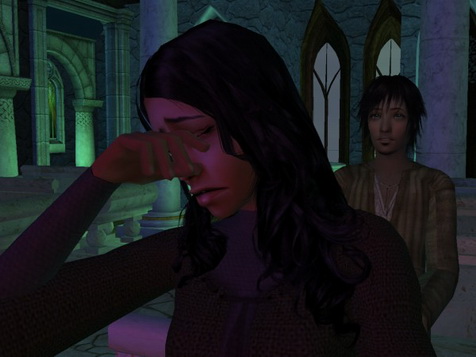
But all the while it had been her father who was dead. Eithne, while not happy, was at least safe. Condal had let her imagination run away with her again. Perhaps if she had prayed more…
She heard a rustling behind her, and something white drifted down and settled softly over the back of her hand – not holiness, but a handkerchief. She clutched at it, horrified first to think that her silent tears had somehow been heard, and then because she did not know whether a girl might accept the use of a handkerchief from a Christian boy she met alone in a chapel, nor whether it was rude if she did not.

Her body went rigid with indecision – already she needed her dear father’s advice, and her father was dead. At that thought, and at the presence of a handkerchief, her hand did what came naturally to hands in such situations and lifted the square cloth to blot at this fresh flood of tears.
The young man awaited no further signal and slipped away, retreating from her in silent steps that could only be heard in the greater silence they left behind.

By the time Condal remembered how to say “Thank you” in English, it was too late: she heard the door clink softly shut, like another nail falling from a great height onto stones. She was alone in the church at last.
She closed her eyes and tried to feel herself among the trees again, but the twilight had faded meanwhile. The forest was dark. The snow had stopped falling.
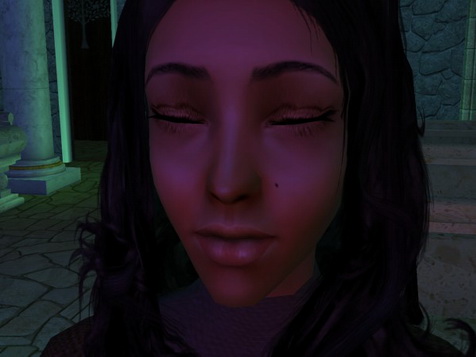







Ooh... New people.
Or do we allready know that boy? There is something a little bit wrong with his face, but I have no idea who's he is.